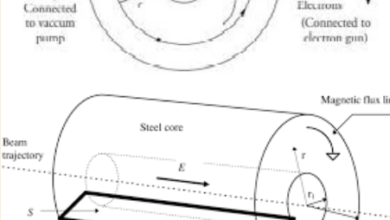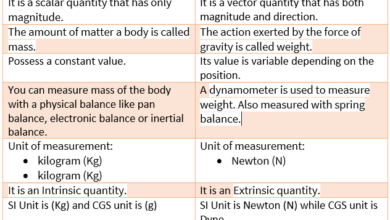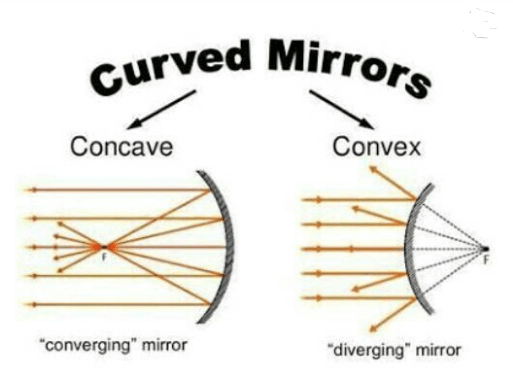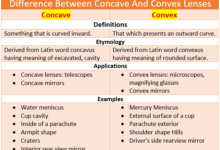Energy is the ability of a force for different bodies to work or to take action for producing changes into themselves or other bodies. it is measured by an SI Unit joule (J). Thermal energy, Mechanical Energy, Electromagnetic energy, Magnetic energy, Chemical energy, Windpower Energy, Solar energy are some common Types of Energy. however, all energy types are sprouted from two major types known as kinetic energy and Potential Energy.
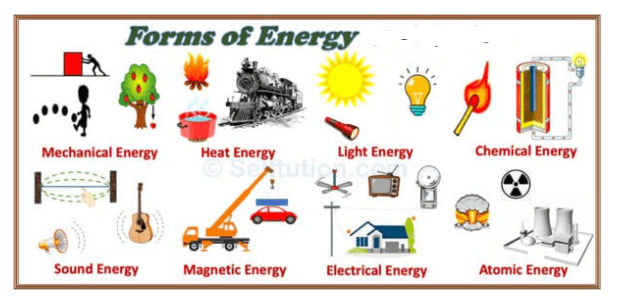
What is Energy?
it is the ability of bodies or a force to do work or generate a function due to its movement (kinetic energy) or its position (Potential Energy) or internal energy. physics and chemistry majorly dependent on energy. energy is also the key factor of human development.
Important Tip: According to first law of thermodynamics the interconversion of energy from one form to another is possible while it can’t be created or destroyed. The total energy of an isolated system remains constant.
Types of Energy
energy can exhibit itself in many different ways. these are known the forms or types of energy which are highlighted in the following:
- Kinetic Energy
- Hydropower Energy
- Potential energy
- Atomic or Nuclear energy
- Electricity
- Electromagnetic Energy
- Chemical Energy
- Mechanical Energy
- Windrower Energy
- Solar Energy
- Heat or Thermal Energy
- Light Energy
- Sound Energy
- Gravitational Energy
- Ionization Energy
Kinetic Energy
According to Physics, kinetic energy is an energy of a body possessed because of its relative motion. in other words, the work done by a body to accelerate a mass from rest to a certain speed is known as kinetic energy. once a body achieved its kinetic energy during the acceleration, it maintains its energy until we change the speed. it is denoted by the symbol Ec and sometimes we also use T and K as well. the SI unit of kinetic energy is also Joules (J).
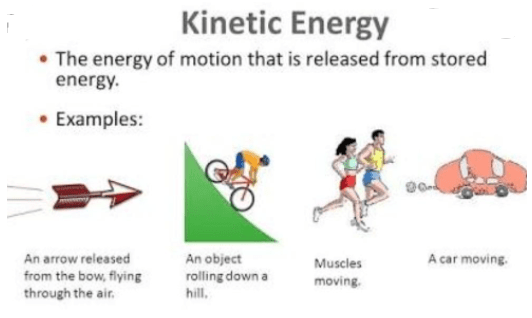
Hydropower Energy
Potential energy
there are two major types of energy kinetic energy and potential energy. the potential energy is the stored energy in an object and is dependent on the position of that object with respect to another object. it can also be transformed into other various forms such as kinetic or caloric etc.
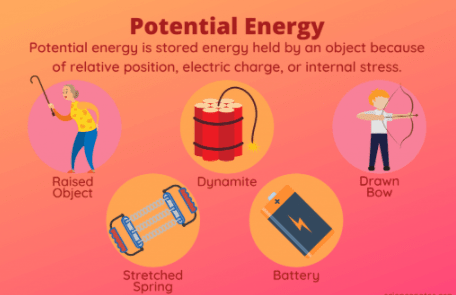
Examples of Potential Energy
- stretching a rubber band
- the water behind the waterfall
- drawing a bow
- A child at the top of a slide
- A ball Placed on a table
- An apple on a tree branch
- Roller coaster
Types of potential energy
- Gravitational potential energy
- Chemical potential energy
- Electric potential energy
- Nuclear potential energy
- Elastic potential energy
- Electrostatic potential energy
Atomic or Nuclear Energy
atomic or nuclear energy is the energy that is obtained from the nucleus of the atoms by a spontaneous or artificial nuclear reaction. it can be used to produce electricity as well and can be obtained in two major ways either nuclear fusion or nuclear fission.
Electricity
Electromagnetic energy
the energy derived from light or electromagnetic waves. it is also called radiant energy.
Chemical energy
the chemical reaction between atoms and molecules results in chemical energy. we have several types of chemical energy such as electrochemical energy and chemiluminescence etc.
Mechanical Energy
the sum of kinetic energy and potential energy is called mechanical energy. it is associated with the movement of an object.
WindPower Energy
Solar energy
Heat or thermal energy
it is produced due to the difference in temperature between the two systems.
Light energy
Sound or Sonic energy
the energy sourced from the sound waves is known as sonic energy. this energy is got when sound waves are traveled through the air or any other medium.
Gravitational Energy
the energy produced by gravity is called gravitational energy. when the attraction between two objects due to their mass happens, this form of energy is produced. it is highly dependable on the mechanical forms of energy such as potential and kinetic.
Ionization Energy
it is the energy that binds electrons tightly to the nucleus with atoms, molecules, or ions.
What are some properties of Energy?
there are 4 basic properties of Energy:
- Energy cannot be created and only can be transformed into different forms of energy.
- the total energy remains conservative during the transformation process. in other words, energy could not be destroyed and remains the same at the end of the process as it was at the beginning.
- we can transfer energy from one body to another in the form of heat, waves, or doing work.
- while doing any work, a part of energy lost and a part of the energy is capable and utilize to do work.
Ways of Energy Transfer
Energy transformation can be made with the help of three ways that are given below:
- work
- heat
- waves
